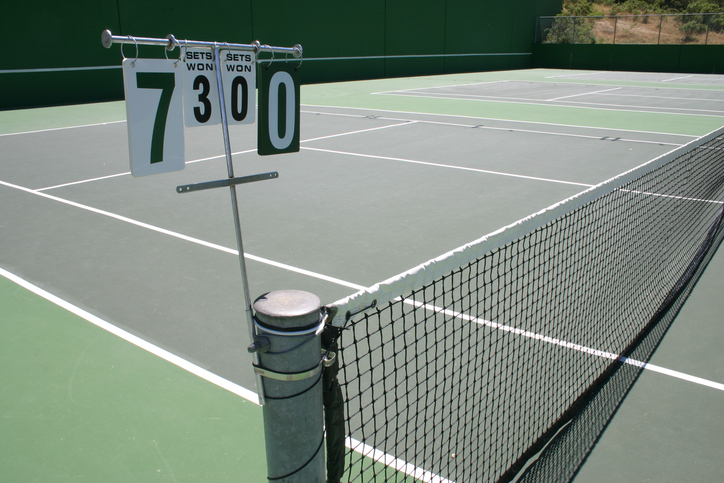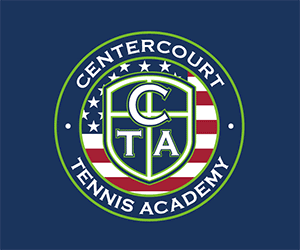How To Handle Cheaters (Part II)

In the November/December 2016 edition of New York Tennis Magazine, I discussed the four options players have when facing a determined cheater. In Part II, I will explore some specific actions and plans that players can take to help ameliorate the cheater's negative impact.
1. Make excuses, whine and complain, and give up
This is a very common response players have when facing a bad cheater. I often have players report to me that they lost a match because of cheating. Let’s stop right there. While it is possible for cheating to swing a match to one side, usually cheating does not, by itself, cause a player to lose a match.
What causes a player to lose a match is losing mental control because of being cheated. It is a player's responsibility to insulate themself from the effects of the cheater. The player must not allow the cheater's psychological warfare to distract from their mental focus or emotional control. It's important to frame the situation this way to honest players and to teach them that using cheating as an excuse for losing is unacceptable.
2. Fight and find a way to win—but never cheat
For “Never Cheaters,” it's important to understand the dynamics of cheating and why the opponent actually cheats.
There is a myth that cheaters cheat because they feel vulnerable and inferior to their opponent. The myth says that they cheat because they don't believe they can win in a fair fight. Of course, this does happen on the court, and cheaters tend to cheat more in close matches or when they are losing. However, a cheater is often just a cheater—they will do anything to win and cheating is a conditioned habit and one of many tools of psychological warfare.
I had a student—and I'm not proud of this—who was a pretty good player, ranked around 60th in the country, but he was a terrible proactive cheater. His favorite ploy was to change the score. His opponent would usually become apoplectic, and a big argument would ensue. He told me this was a great way to shift the momentum of a match. I discouraged this behavior, but I'm not sure he ever abstained completely from cheating even after my intervention.
Honest players must understand that cheating is probably the most powerful tool of psychological warfare available to a tennis player, and they must fight to prevent a cheater from disrupting their focus and emotional control.
►Getting an umpire: Getting an umpire is a common solution. However, the umpire often cannot stop a determined cheater. A good cheater can still make bad calls at opportunistic moments and can twist the score in ways that the umpire cannot prevent. Oftentimes, the umpire will not be paying attention or will leave the court and roam to other courts, leaving moments for the cheater to do their dirty work.
►Playing safer: Another commonly advised solution to cheating is to play safer and away from the corners and lines, where it is easier for a cheater to cheat. Players can also spin in the first serve more frequently and away from the lines to prevent the cheater from calling second serves out. While this can help the problem, a determined cheater will still call balls out, even balls that are not that close to the lines. In addition, the “Playing Safer Strategy” is not really effective for power players who are aggressive and need to play close to the lines to win. This strategy works better for patient, control-oriented players.
►Bathroom breaks: As Frank Giampaolo recommends in his book, The Tennis Parents Bible (Second Edition), to use bathroom breaks—which are legal—to fight back and put the freeze on the cheater after a big argument over a score or line call. Use the bathroom break to recover mentally and emotionally, and also to dish back some mental disruption to the cheater. It's annoying to sit there waiting for your opponent to return from the bathroom, and the waiting player will often lose focus and get cold!
►The drop shot: I teach my players to use the drop shot as a tool for mental warfare, and it is almost as powerful as cheating in this regard. A good drop shot can really get under the skin of the cheater and frustrate them. Practice this shot frequently and deploy it liberally when playing a cheater to annoy them and fight back in the mental battle. The drop shot, followed by a lob, can drive the cheater nuts!
►Challenge the cheater: Players should not be afraid to challenge the cheater verbally and let them know what's up. The player can bring the cheater up to the net for a little tough talk. The honest player can tell the cheater that they are going to make them suffer with the drop shot, for example.
Just make sure that, when challenging a cheater, a player does not lose their own focus and emotional control. The cheater is an expert at psychological warfare, and probably has more experience than the honest player in verbal battles on the court. Be aware that the cheater will say anything and everything to rile their opponent and get under the honest player's skin.
3. Fight and find a way to win using retaliatory cheating to even the playing field
For those who are comfortable with retaliatory cheating, it’s important to be certain they were cheated in the first place before engaging in any cheating back. Remember, not everyone is a cheater, as many players just make mistakes. The ball is moving fast and it's hard to see sometimes—that's a reality.
Sometimes with one good retaliatory cheat—strange as it may sound—you can earn the respect of the cheater, and they may actually stop. It may be the only way to make a habitual cheater stop.
Retaliatory cheaters must be careful to avoid falling into the trap of assuming everyone is cheating them and of slipping into proactive cheating, which is a real danger. Watch out for the slippery slope and maintain ethical boundaries.
4. Quit the match and extract oneself from the toxic situation
Sometimes the cheating is so heinous and rampant that a player may decide to actually forfeit the match. I once had a student do just this at a local tournament, and I was shocked to hear that he chose to quit, rather than try and tough it out.
Generally, I would recommend that players try to overcome the challenge in front of them, but in some instances of egregious and determined cheating, it can be healthy for a player to understand that this is only a game and that they do not need to play this cheater—they can choose to leave the tournament and play again another week. This should be a last ditch choice for very extreme situations.
In these instances, players should try to be respectful to the tournament officials and director. They can explain their rationale for forfeiting and file a complaint with the USTA Competition Chairperson. Unfortunately, the USTA does not have a lot of power under current regulations to censure or punish cheating players in these instances, and it's hard to prove a case against a cheater.
Conclusion
When facing a cheating player, it's important to never make excuses and give up trying to fight. Players need to determine whether they will choose to fight with retaliatory cheating or to fight while never cheating back based on their and their family's moral and ethical framework. They then need to follow a game plan to work towards success. In very extreme situations where the cheating is particularly offensive, a player always has the right to exit the court and forfeit the match.







